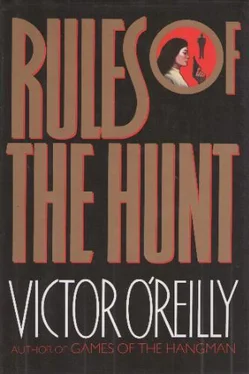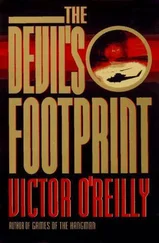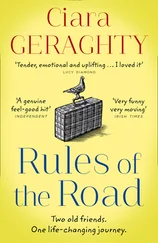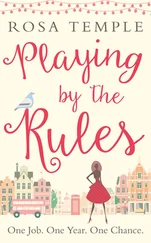Victor O'Reilly - Rules of The Hunt
Здесь есть возможность читать онлайн «Victor O'Reilly - Rules of The Hunt» весь текст электронной книги совершенно бесплатно (целиком полную версию без сокращений). В некоторых случаях можно слушать аудио, скачать через торрент в формате fb2 и присутствует краткое содержание. Жанр: Триллер, на английском языке. Описание произведения, (предисловие) а так же отзывы посетителей доступны на портале библиотеки ЛибКат.
- Название:Rules of The Hunt
- Автор:
- Жанр:
- Год:неизвестен
- ISBN:нет данных
- Рейтинг книги:4 / 5. Голосов: 1
-
Избранное:Добавить в избранное
- Отзывы:
-
Ваша оценка:
- 80
- 1
- 2
- 3
- 4
- 5
Rules of The Hunt: краткое содержание, описание и аннотация
Предлагаем к чтению аннотацию, описание, краткое содержание или предисловие (зависит от того, что написал сам автор книги «Rules of The Hunt»). Если вы не нашли необходимую информацию о книге — напишите в комментариях, мы постараемся отыскать её.
Rules of The Hunt — читать онлайн бесплатно полную книгу (весь текст) целиком
Ниже представлен текст книги, разбитый по страницам. Система сохранения места последней прочитанной страницы, позволяет с удобством читать онлайн бесплатно книгу «Rules of The Hunt», без необходимости каждый раз заново искать на чём Вы остановились. Поставьте закладку, и сможете в любой момент перейти на страницу, на которой закончили чтение.
Интервал:
Закладка:
He had left the bread board on the counter by the window. As he picked up the bread knife, there was sudden flash of lightning and a loud crack and the kitchen light went out.
He looped up at the lifeless tube, then noticed the radio had gone dead. Either the lines were down or a couple of fuses had blown. Ah, well, it was of little matter. What he planned to do next was as often as not done in the dark. And with Kathleen in her present condition, it might be better that way.
He turned around to finish cutting his bread, and screamed. Through rain-smeared glass he could see a face looking down at him. The face was like something out of a nightmare. It was large and hairy and grim, and the man himself was a giant. He wore some kind of matted mud-smeared garment.
The window in front of him exploded into shards of glass and a massive hand reached out for him, grabbed him by the collar, and hauled him off his feet.
Desperately, he lashed out with the bread knife, felt the blade make contact, and pulled free.
There was a crash at the front of the house, and he could feel the wind whistle down the corridor. Someone had broken in, but that was the least of his worries. His AK-47 was on top of the dishwasher only feet away. He dived for it and knocked it onto the floor as he grabbed.
He rolled, found the weapon, and turned. The massive fist holding the largest handgun he had ever seen was pointing right at him. There was a stab of flame, and he felt a terrible blow on his right shoulder. The weapon slid from his arms and he slumped back, half lying on the floor but partially propped up against the kitchen unit.
He could see blood seeping from his body, but he could not move and he felt nothing. He heard more smashing of glass and then a huge figure came through the kitchen door, kicked away his automatic rifle, and stood looking down at him.
Eamon found he could not raise his head. He noticed that the mud-stained figure was wearing wet, muddy, but expensive shoes. They were Swiss, he recalled, but he could not remember the name.
The plainclothes detective came into the kitchen. His grandfather had been in the old IRA in the fight for freedom against the British and he had served on the border in Dundalk for several years. What today's terrorists did made him sick. And time and again, they seemed to evade the security forces through legal technicalities and playing one side against the other.
How could you fight a completely ruthless terrorist organization within the context of a legal framework designed for peacetime civilian application?
One of the uniformed gardai had broken down the door, but the detective, being armed and experienced in such things, was the first man to enter the house. The front room was on his right. With one of the uniforms keeping an eye on his back, he kicked open the door, but kept to one side, half expecting an answering burst of fire. There was nothing – which was just as well. The protection of the thin partition wall was an illusion.
He entered the room in a sudden movement and rolled to find cover. He could see very little. There was no light and the blinds were drawn. Outside, the rain had stopped as abruptly as it had started, but the sky was still overcast with black clouds. There was a disturbing sweetish metallic smell in the air. It set his nerves on edge. It was the smell of blood and body matter and fear, the odor of the slaughterhouse.
His eyes adjusted to the gloom. Tentatively, he stood up, glanced around, and opened the blinds. The floor and furniture and part of the walls were drenched in blood. There was something on the floor half covered in a newspaper. He pulled the paper aside and gagged. The man's throat gaped at him and the expression on his face was that of utter horror.
One of the uniforms came in. "Jesus, mother of God," he said, and crossed himself. He then went across to the two bound figures in the corner and, removing a clasp knife, cut their bonds.
One of the figures, the younger woman, was trying to say something. Her face and upper body were sticky with blood, and she smelled of vomit. The policeman suppressed his nausea and put his head close to hers. "I had to," she said. "I had to."
The policeman did not understand. He tried to say something reassuring, but the bloody figure reached out a hand and gripped his arm with such intensity that it hurt. "They made me talk," she said. "They killed my father."
She started sobbing. "They killed my father. They killed my daddy."
The policeman was a kindhearted man, used to dealing with farmers who had not licensed their cars and poachers who were overly fond of other people's salmon. He felt tears come to his eyes, and he put his arms around the woman.
Her grip tightened. "Now they are going for Hugo," she said, "in the hospital." The she was silent, and the policeman could see her gathering her strength. Her next words came out almost in a shout.
"They know everything," she said. "They know everything, the guards, the layout, the routines." She made a final effort. "But I told them the wrong room. I told them Room Number 4."
The policeman gently disentangled himself and wrote down what he had heard in his notebook.
The second policeman had telephoned for an ambulance and other assistance and then ministered to Kathleen's mother. The ambulance would come from ConnemaraRegionalHospital, but where it could safely go would require some thought.
The detective, a father of four and an experienced graying sergeant in his forties, a man noted if not for brilliance, then for reliability, went into the kitchen and saw Eamon sprawled on the floor.
"One of them?" he said to the Bear.
The Bear indicated the AK-47 and nodded. Blood dripped from a long cut on the back of his hand, but he seemed oblivious to it.
"Have a look next door," said the detective heavily. His Uzi was now pointed at Eamon.
The Bear lowered his pistol and headed toward the front room.
The detective walked closer to Eamon. The terrorist smiled at him nervously. The man looking down at him was more of a known quantity. A policeman always looked like a policeman. There would be an ambulance and medical assistance and a cop by his bedside while he recovered. There would be questioning and a trial and a sentence to some high-security prison. He would either escape or be with his own kind. It wouldn't be too bad. It went with the job.
The detective took up the pressure on the trigger and looked into Eamon's eyes, and for an instant Eamon knew he was about to die.
He was screaming as the detective fired and continued firing until the magazine was empty.
The Bear carried Kathleen out of the charnel house that was the front room and laid her on the big bed in the master bedroom. She had fainted briefly, but her eyes opened again as he covered her. He sat beside her and held her hand.
There was a glimmer of recognition in Kathleen's eyes. She had never seen this man before, but she knew. "You're the Bear," she said. "Hugo told me about you."
The Bear knew his nickname well enough, but he was never so called to his face. There were conventions in these matters. Anyway, he rather liked his given name of Heinrich – Heini, for short – and Sergeant worked fine for those who knew him less well.
Still, this was a woman of courage, and it was not time to stand on ceremony. "I am the Bear," he said, nodding his large and shaggy head.
Kathleen started to laugh and cry, and the Bear sat on the edge of the bed and held her in his big arms until the ambulance came.
McGonigal had three of his own men with him – Jim Daid, Tim Pat Miley, and Gerry Dempsey – and Sasada.
His men were a known quantity on an operation; Sasada was not. It had been agreed that he would stay with the cars unit they had completed the hit. The persuasive argument had been that a Japanese, in this backwater, would attract attention.
Читать дальшеИнтервал:
Закладка:
Похожие книги на «Rules of The Hunt»
Представляем Вашему вниманию похожие книги на «Rules of The Hunt» списком для выбора. Мы отобрали схожую по названию и смыслу литературу в надежде предоставить читателям больше вариантов отыскать новые, интересные, ещё непрочитанные произведения.
Обсуждение, отзывы о книге «Rules of The Hunt» и просто собственные мнения читателей. Оставьте ваши комментарии, напишите, что Вы думаете о произведении, его смысле или главных героях. Укажите что конкретно понравилось, а что нет, и почему Вы так считаете.




![Беар Гриллс - The Hunt [=The Devil's Sanctuary]](/books/428447/bear-grills-the-hunt-the-devil-s-sanctuary-thumb.webp)







